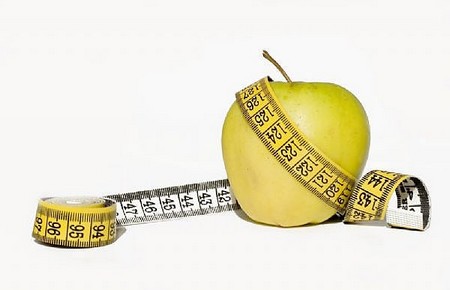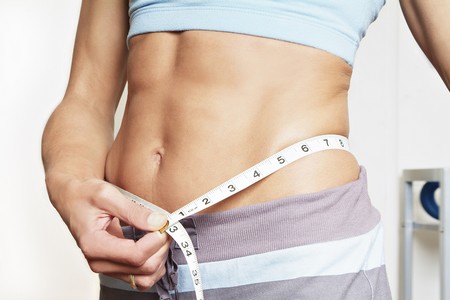People eat for a variety of reasons, many of them having nothing to do with hunger. They eat as a social function, because they’re bored, depressed, or elated, or as a way to nurture themselves. Whatever the reason, the choices you make reflect a long-ingrained need for certain types of food.
Your nutritionist or other health care practitioner will tell you how many calories you should eat in a day, and you probably already know how to count calories. There are, however, some tricks you can play on yourself to lower your caloric intake, while barely noticing the “loss” and without feeling as though you’re eating nothing but “rabbit food.” By the way, have you ever noticed that most rabbits are quite plump?

- Trim all visible fat off meat and poultry. You’ll retain the taste of the meat but greatly reduce the calories it contains.
- If you don’t want to drink skim milk because it’s too thin or looks strange in your coffee, use 1% or 2% milk (and other dairy products). The flavor will come through the way you like it, but you will cut your fat calories by 50 to 75 percent. Use skim milk in recipes; you won’t be able to tell the difference.
- Give up real sour cream. Try substituting yogurt, or mix it in equal parts with low-fat sour cream. It tastes almost like the real thing.
- Remove the skin from poultry before you eat it and never fry it. Consider Southern fried chicken a relic of the past—or a semiannual treat.
- • Give up butter, lard, bacon fat, and shortening; cook with liquid oils. You may find that your food actually tastes better, because it won’t be overwhelmed by the taste of the grease.
- When baking, use three-quarters the amount of sugar called for in the recipe. If it tastes fine (and it probably will), try cutting the sugar content down to two-thirds.
- Skim the fat off soups and stews. If you can, make them the day before, refrigerate overnight and then peel off the solidified fat. These kinds of foods often taste better when allowed to rest for a day anyway.
- Try not to eat eggs as a food (no more cheese omelets as a midnight snack). Think of them only as an ingredient in recipes.
- Avoid sweet alcoholic beverages such as liqueurs, cordials, and sweet wines. If you must have a drink after dinner, take a small glass of dry wine or nonmalt liquor.
- Drink only diet sodas and use artificial sweeteners in your coffee and tea.
- Don’t eat sugar-coated cereal or chew sugared gum.
- Eat dried fruits only in moderation, and use the unsweetened variety of foods such as jelly, jam, condensed milk, canned fruit, syrups and the like.
- Think very carefully and plan ahead for desserts.
- Eat smaller portions, and stop eating when you’re full. Don’t worry about insulting your hostess if you don’t finish everything on your plate, and don’t allow yourself to be talked into second helpings if you don’t want them or shouldn’t have them. Resign your membership in the “clean plate club.”
- Think about where you are and what you are doing when you eat high-fat, high-sugar foods (usually snacks). Do you grab a bag of salted peanuts when you settle in front of the TV? Do you stop at a Dairy Queen on the way home from work? Do you always help yourself from the office doughnut supply? Try to break these negative eating habits.
- If you know you are eating as a reaction to emotional stress, use other ways to deal with the stress, such as exercise, taking a bath, or talking to a friend.
- Stay out of fast-food restaurants unless you promise yourself that you’ll stick to the salad bar or grilled chicken.
You may already know about the above hints and techniques, and there are many more you could add to this list. But none of them is helpful unless you have already made a commitment to yourself to lose weight. No one can talk you into it, and you lose weight for no one but yourself. No matter how long and hard you have been encouraged (even nagged) by family and friends, your weight reduction program won’t be successful until you are committed.

Diabetes can be the impetus that finally does the trick. It often works that way with other diseases. A man who keels over from a heart attack spends some of his time in the cardiac care unit evaluating his lifestyle (and his high-fat diet) and resolves to mend his ways. A woman whose blood pressure goes through the roof and results in a stroke learns to throw away her salt shaker and read food labels as she is learning to navigate her house with a cane or walker.
In many ways, it’s a matter of what you value and what’s important to you. No one can guarantee your safety on the highway if you obey the rules, don’t speed, and keep your distance from other cars, but your chances of reaching your destination safely are increased if you drive safely. By the same token, there’s no saying for certain that you will suffer the dire consequences of diabetes if you don’t lose weight and get control of your blood glucose, but the risk will be greatly increased. It’s your choice.